6 Degrees Berlin Speakers
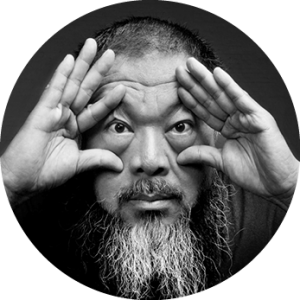
Ai Weiwei
Artist and activist (China)
Ai Weiwei is renowned for making strong aesthetic statements that resonate with timely phenomena across today’s geopolitical world. From architecture to installations, social media to documentaries, Ai uses a wide range of mediums as expressions of new ways for his audiences to examine society and its values. Recent exhibitions include Ai Weiwei: RAIZ at Oca in São Paulo; Ai Weiwei: Life Cycle at the Marciano Art Foundation in Los Angeles; Fan-Tan at Mucem in Marseille; Good Fences Make Good Neighbors with the Public Art Fund in New York City; Ai Weiwei on Porcelain at the Sakip Sabanci Museum in Istanbul; Ai Weiwei: Trace at Hirshhorn at the Hirshhorn Museum and Sculpture Garden in Washington, D.C.; Maybe, Maybe Not at the Israel Museum in Jerusalem; and Law of the Journey at the National Gallery in Prague.
Ai was born in Beijing in 1957 and currently resides and works in Berlin. Ai was an Einstein Visiting Professor at the Berlin University of the Arts (UdK) from 2015 to 2018, and he is the recipient of the 2015 Ambassador of Conscience Award from Amnesty International and the 2012 Václav Havel Prize for Creative Dissent from the Human Rights Foundation. Ai’s first feature-length documentary, Human Flow, premiered at the 74th Venice International Film Festival in competition.
See Ai Weiwei at Art and Protest.
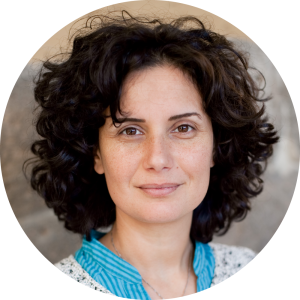
Kefah Ali Deeb
Artist and writer
Kefah Ali Deeb was born in Syria. She is passionate about painting and writing. In Syria, she worked as an editor for Joussour magazine and as a writer for Osama children’s magazine published by the Ministry of Culture. In 2012, she won the Al Sharjah Award for Arab Creativity for her children’s books. In 2014, she was the chief editor for Qaws Quzah children’s magazine published by Olive Branch Organization in Syria.
She follows her passion also now in Germany: she publishes articles for German magazines, such as Zeit Online and 51°, and writes her own column for the publication TAZ. On Saturdays you can find her doing tours in the Pergamon Museum of Berlin with the project Multaka.
As an editor for Handbook Germany, she aims to create an information gate for newcomers, hoping to give people the ability to build a colourful Germany.
See Kefah Ali Deeb at the Coffeehouse.

Amer Alqadi
Entrepreneur Guide, SINGA Business Lab (Palestine/Germany)
Alqadi has a background in business management and human resources, having worked for some of the largest industrial companies in the Middle East. He is most well-known for having developed human resources train-the-trainer programs across Syria. Since moving to Germany, Alqadi has also developed a passion for connecting newcomers and locals through business. At the SINGA Business Lab, he is the main link between the program and the entrepreneurs. He ensures that the program is co-created with participants at every step of the way.
See Amer Alqadi at 360: Where We Go.
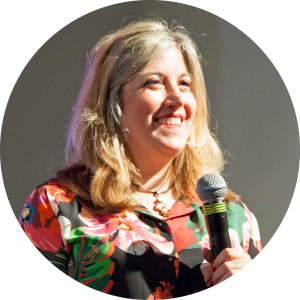
Tatiana Bazzichelli
Founding Director, Disruption Network Lab
Tatiana Bazzichelli is the Founding Director of the Disruption Network Lab, a conference program on art, digital rights, and disruption in Berlin at Kunstquartier Bethanien. She researches network culture, hacktivism & whistleblowing and holds a PhD degree in information and media studies from the Faculty of Arts of Aarhus University in Denmark. In 2009, Bazzichelli was a visiting scholar at H-STAR, the Human-Sciences and Technologies Advanced Research Institute, at Stanford University. She has been a program curator at Transmediale, a Berlin-based festival for art and digital culture, and until 2014, she was a post-doctoral researcher at the Centre for Digital Cultures, Leuphana University of Lüneburg. In 2016–2017, she was a visiting lecturer at the University of Applied Sciences Potsdam, teaching art, hacking, and whistleblowing. She has authored three books published in Denmark, Italy, and the U.S., respectively: Networked Disruption, Networking, and Disrupting Business (which she co-edited).
See Tatiana Bazzicelli at 360: Where We Go.
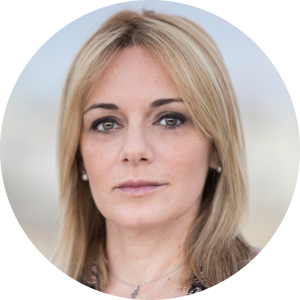
Regina Catrambone
Co-founder and Director, Migrant Offshore Aid Station - MOAS
Born and raised in southern Italy, Regina Catrambone is the co-founder and director of the search-and-rescue organization MOAS. Inspired by the terrible shipwreck that took place off Lampedusa in 2013, Catrambone and her husband Christopher founded the Migrant Offshore Aid Station in 2014 to alleviate the unnecessary loss of lives at sea.
In September 2017, after suspending its SAR mission, MOAS redeployed its assets in Southeast Asia to react to the unparalleled Rohingya exodus to Bangladesh and to provide sorely needed medical assistance to both Rohingya and local host communities. In October and November, MOAS opened two primary health centres (called aid stations) in Shamlapur and Unchiprang.
See Regina Catrambone at 360: Where We Stand.
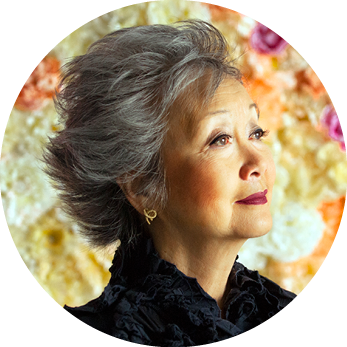
The Rt. Hon. Adrienne Clarkson
26th Governor General of Canada & Co-founder and Co-chair of the Institute for Canadian Citizenship (Canada)
The Rt. Hon. Adrienne Clarkson arrived in Canada from Hong Kong as a refugee in 1942 and made the astonishing journey from a penniless child to accomplished broadcaster, journalist, and distinguished public servant in a multi-faceted lifetime.
During Madame Clarkson’s mandate as Governor General, her energy, enthusiasm, and passion left an indelible mark on Canada’s history. A leading figure in Canada’s cultural life, she is the best-selling author of the 2014 CBC Massey Lecture Belonging: The Paradox of Citizenship; Room for All of Us: Surprising Stories of Loss and Transformation; Heart Matters: A Memoir; and a biography of Dr. Norman Bethune.
Madame Clarkson has received numerous prestigious awards and honorary degrees in Canada and abroad. A Privy Councillor and Companion of the Order of Canada, she lives in Toronto.
See Adrienne Clarkson at Art and Protest, and What’s Next?
Joshua DePerry
Music producer, DJ, Indigenous dancer (Canada)
Joshua DePerry (a.k.a. Classic Roots) is a Bear Clan, Ojibway (Anishinaabe), and Blackfoot Tribe from Long Lake 58 First Nation. DePerry will demonstrate various social dances through Men’s Fancy Dancing, while also sharing the cultural significances of their dance styles, steps, and outfits. He weaves optimism into First Nations music and workshops, using it as a tool to inspire greater sense of self-confidence in First Nations youth.
See Joshua DePerry at A 6 Degrees Berlin Performance.
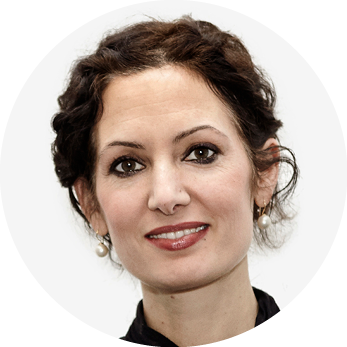
Dr. Naika Foroutan
Director, German Center for Integration and Migration Research (DeZIM) (Germany)
Naika Foroutan is a professor of integration research and social policy at Humboldt-University of Berlin, the founding director of the German Center for Integration and Migration Research, and as well as the director of the Berlin Institute for Integration and Migration Research (BIM) also at the Humboldt-University of Berlin. Her research and teaching focuses on topics such as migration and integration, the perception of Islam and Muslims in Germany, identity and hybridity studies, political Islam, and as well as societal transformations of countries of immigration. In 2012, she received the Fritz-Behrens Foundation‘s SciencePrize for excellent scientific research.
See Naika Foroutan at 360: Where We Go.
Sima Gatea
Co-founder, SINGA Deutschland (Canada/Germany)
Sima Gatea is a social entrepreneur and transcultural migration expert from Toronto and Berlin. As co-founder of SINGA Deutschland, she uses co-creation and social innovation to experiment with more sustainable and impact driven approaches to integration. Gatae holds a BA in political science from Queen’s University and a MA in transcultural studies from the University of Heidelberg, and has worked at the Ontario provincial parliament, Canadian embassy in Berlin, the German Marshall Fund’s Transatlantic Forum for Migration and Integration, SAP’s Corporate Social Responsibility Department, and the Norwegian Refugee Council in Addis Ababa. Gatea is an Ashoka Changemaker and 2017 CrossCulture Programme (CCP) Fellow from the Institut für Auslandsbeziehungen of the German Federal Foreign Office.
See Sima Gatea at the Coffeehouse.
Sara Grossman
Communications & Media Specialist at the Haas Institute for a Fair and Inclusive Society (USA)
Sara Grossman is a Communications and Media Specialist at the Haas Institute for a Fair and Inclusive Society, where she writes about race, gender, and other topics related to the Institute’s research. She graduated from UC Berkeley with a degree in Political Economy. She now lives in Berlin and runs the Angles art collective, which brings together artists, writers, filmmakers, photographers, and other creatives of diverse backgrounds to artistically tell stories about the people and places that make Berlin.
See Sara Grossman at the Coffeehouse.
Wolfgang Gründinger
Advisor, German Association of the Digital Economy (Germany)
Born in 1984, Wolfgang Gründinger has acquired an outstanding reputation as a voice of future generations. He is spokesperson of the Foundation for the Rights of Future Generations, a think tank for intergenerational justice in Germany. Gründinger has written five books on intergenerational justice, sustainability, demographic change, the future of democracy, and energy and climate policy. In his PhD, he investigated the role of lobbying and interest groups in the German Energy Transformation, holding a scholarship of the Foundation of German Business. Currently he works as an Advisor on Digital Transformation at the German Association of the Digital Economy (Bundesverband Digitale Wirtschaft, BVDW).
Gründinger has become well-known through a number of activities, including an act of civil disobedience at the UN Climate Conference in Cancun in 2010 where the police removed him from the conference grounds, his campaign for a “carbon free parliament,” his constitutional complaint against the minimum voting age that he filed together with 11 children, and his cross-party Future Manifesto by young politicians from six different political parties, which was published in the German weekly paper DIE ZEIT. A Social Democrat, he infiltrated the Pirate Party and published a book about his experiences as double member in two political parties.
Gründinger has received many awards, including the German Environment Award, the German Studies Award, the Award for Intergenerational Justice and the Award for Demography Studies. He holds a master’s in Political and Social Sciences and has studied at the University of Regensburg, the Humboldt University in Berlin and the University of California, Santa Cruz. He also attended the Oxford Internet Leadership Academy.
See Wolfgang Gründinger at the Coffeehouse.

Giorgos Kaminis
Mayor of Athens (Greece)
Giorgos Kaminis was elected Mayor of Athens in November 2010 and re-elected for a second term in May 2014. From 1998 to May 2003, Mr. Kaminis served as Deputy Ombudsman for Human Rights, and in 2003, he was unanimously elected Greek Ombudsman by the Greek Parliament, re-elected for a second term in 2007. In August 2010, Mr. Kaminis resigned from this position in order to stand as an independent mayoral candidate for the City of Athens.
Mr. Kaminis is an assistant professor of constitutional law at the University of Athens’s Faculty of Law and a member of the scientific staff in the Department of Parliamentary Studies and Research of the Greek Parliament. In 2016, he received a World Mayor Commendation for his services to refugees.
Mr. Kaminis studied law at the University of Athens and holds a doctoral degree (Doctorat d’Etat) from the University of Paris I. He was born in New York City and has also lived in Osaka, Paris, Madrid, and Heidelberg. In addition to his native Greek language, he speaks English, French, Spanish, and German fluently.
Mr. Kaminis is married and has two children.
See Giorgos Kaminis at 360: Where We Stand.
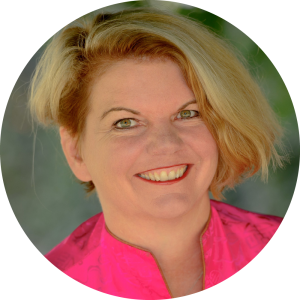
Ines Kappert
Executive Director, Gunda Werner Institute for Feminism and Gender Democracy (Germany)
Dr. Ines Kappert is the executive director of the Gunda Werner Institute for Feminism and Gender Democracy in Berlin. An affiliate of the Heinrich Böll Foundation, the Gunda Werner Institute focuses on gender political questions and furthers the debate on intersectional feminism and feminist foreign policy. Kappert’s work is focused on the examination and consequences of exclusion versus privilege in society.
From 2007 to 2015, Kappert worked as a journalist for the Berlin newspaper taz. She has published more than 400 articles on topics such as feminism, Syria, and displaced people in Germany.
In 2016, along with 100 other women working in the fields of sciences and the arts, she co-founded We Are Doing It, an initiative highlighting projects meeting the challenge of worldwide migration. In 2017, Kappert was a member of the artistic leadership team for the project Weiter Schreiben (Writing On), which publishes texts by authors from crisis areas, thus giving them a voice to make people aware of their issues. She further co-founded Baynatna. The Arabic Library, the first public library and salon hosting and presenting Arabic-speaking culture in Berlin.
See Ines Kuppert at the Coffeehouse.
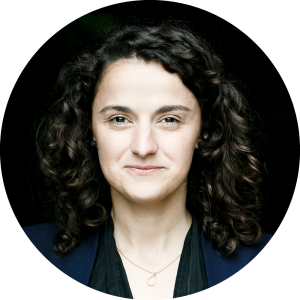
Esra Küçük
Managing Director, Allianz Cultural Foundation (Germany)
Esra Küçük is Managing Director of the Allianz Cultural Foundation. She is a political scientist by education, and her work focuses on issues of a changing society.
See Esra Küçük at 360: Where We Stand.

Dany Laferrière
Novelist and screenwriter (Canada)
Laferrière was born in Port-au-Prince, Haiti, and spent his childhood with his grandmother in Petit-Goâve. In 1976, he left Haiti for Quebec, fleeing the Duvalier dictatorship following the assassination of his friend and colleague, the journalist Gasner Raymond.
His novels include Comment faire l’amour avec un nègre sans se fatiguer [How to Make Love to a Negro without Getting Tired] and L’énigme du retour [The Return], for which he was awarded the Prix Médicis in 2009 and the International Literature Award – Haus der Kulturen der Welt 2014 (for the German translation). His 2018 Autoportrait de Paris avec chat was considered by many in the press as the craziest and most liberating book written in decades. Its 320 pages were all written by hand.
Laferrière has also written several scripts for award-winning films.
Laferrière’s work is patient and powerful, and gracefully combines fiction and reflection. Between 1985 and 2018, he published 30 books, and his work has been translated into more than 15 languages, including German.
In December 2013, Laferrière was elected as member of the Académie française. His election is considered a major event in the annals of literature.
See Dany Laferrière at 360: Where We Stand.
Abdul-Rehman Malik
Postgraduate Associate at Yale University and Program Manager at Radical Middle Way (Canada/UK)
Abdul-Rehman Malik is an award-winning London-based journalist, educator, and organizer. Malik is the Program Manager for the Radical Middle Way, which offers powerful, faith-inspired guidance and tools to enable change, promote social justice for all, and combat exclusion and violence. His work has spanned the U.K., Indonesia, Pakistan, Sudan, Mali, Morocco, Singapore, Canada, and Malaysia. In January 2015, he became Director of the Insight Film Festival, a unique year-round festival that celebrates the intersection between faith and film. In 2017, he was a Yale Greenberg World Fellow.
Malik is a regular contributor to BBC Radio, hosting Pause for Thought—contemporary perspectives on spirituality—on BBC Radio 2 and presenting documentaries and programs for BBC Radio 4 and the BBC World Service. His recent documentary work includes The Muhammadan Bean: The Secret History of Islam and Coffee and Finding Allah at 33rpm.
A trustee of the Sandford St Martins Trust, which promotes excellence in broadcasting about religion, Malik has a keen interest in harnessing cultural production capital for social change. In addition to providing content guidance to a variety of cultural and literary institutions, he is currently working with colleagues from around the world to establish a global network of Muslim cultural leaders committed to building cultural capital and supporting cutting-edge artistic production.
See Abdul-Rehman Malik at the Coffeehouse and What’s Next?
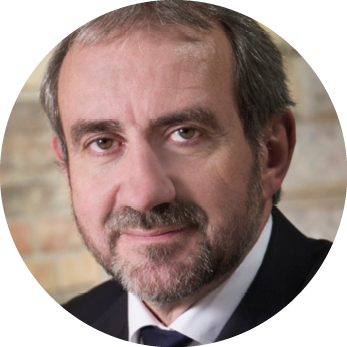
Dr. Hermann Parzinger
President, Prussian Cultural Heritage Foundation (Germany)
Professor Parzinger studied archaeology and history. After receiving his doctoral degree in prehistory, he worked as an associate professor at Munich University. In 1990, he was appointed first director and then, in 2003, president of the German Archaeological Institute. In this capacity, he led various archaeological research projects in Spain, Turkey, Siberia, Kazakhstan, Uzbekistan, Tajikistan, and Iran in close cooperation with local research institutions. He is currently a professor of prehistory at the Free University in Berlin, and since 2008, he has been the president of the Stiftung Preußischer Kulturbesitz (Prussian Cultural Heritage Foundation). He has received the Leibniz Award and several other prizes for his research, and he is a member of numerous academies in Russia, China, Spain, Great Britain, Romania, the United States of America, and Germany. He has written 15 books and over 250 essays on different topics, in recent years increasingly dealing with cultural and academic policy issues.
See Hermann Parzinger at Art and Protest.
Coral Salvador Soy
Activist, 2017 6 Degrees Junior Fellow (Catalonia)
Coral Salvador Soy studied Biotechnology at the University of Barcelona for her undergraduate degree. In 2016, she decided to get involved with the refugee crisis and to go to the north of Greece right after the Turkey-EU deal when all the European borders were closed. At this point, her professional and personal life totally changed. Salvador Soy spent several months in different refugee camps. Afterwards, she completed a post-bachelor’s degree in Humanitarian Activity and a master’s in International Cooperation and Development at the Open University of Catalunya. Salvador Soy spent the last year of her master’s involved with the Refugee Accommodation and Solidarity Space City Plaza in Athens, Greece. The group very much appreciated the great help and support from the Institute for Canadian Citizenship during the four months after Salvador Soy attended 6 Degrees Toronto as a fellow in September 2017. Salvador Soy’s main aim has never been “volunteering” in itself, but struggling against the EU deals and European migration policies.
Currently, Salvador Soy is thinking about and working on new projects: going through the Balkan Route providing supplies and support to those who are crossing the borders by foot, as well as going to Rojava (Kurdish area in Syria) to document the reality and the struggle of the Kurds.
See Coral Salvador Soy at the Coffeehouse.
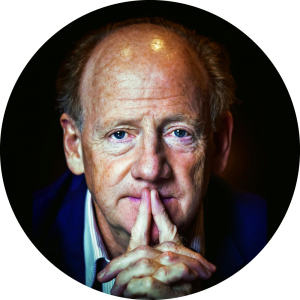
John Ralston Saul
Award-winning essayist and novelist & Co-founder and Co-chair of the Institute for Canadian Citizenship (Canada)
John Ralston Saul proposes a new humanism through what he calls responsible individualism. His 14 works have been translated into 29 languages in 38 countries. His philosophical trilogy and its conclusion—Voltaire’s Bastards, The Doubter’s Companion, The Unconscious Civilization and On Equilibrium: Six Qualities of the New Humanism—has impacted political thought in many countries. In A Fair Country: Telling Truths about Canada, he argues that modern Canada is profoundly shaped by Indigenous ideas. He is general editor of the Extraordinary Canadians biographical series and contributed his own biography of Louis-Hippolyte LaFontaine and Robert Baldwin. The Comeback, his latest release, explores how Indigenous peoples are empowering themselves for a grand return to a position of power and influence.
Saul is President Emeritus of PEN International, and founder and honorary chair of French for the Future. He also founded the LaFontaine-Baldwin Lecture. He is a Companion of the Order of Canada, a member of the Order of Ontario and a Chevalier in the Ordre des Arts et des Lettres (an Order of France). His many literary awards include Chile’s Pablo Neruda International Presidential Medal of Honour, the Governor General’s Award and the inaugural Gutenberg Galaxy Award.
See John Ralston Saul at 360: Where We Stand and What’s Next?
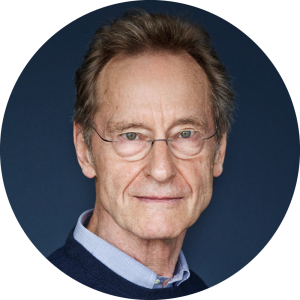
Photo: Gaby Gerster / © Diogenes Verlag AG Zurich
Bernhard Schlink
Writer, Professor of Public Law and Legal Philosophy (Germany)
Bernhard Schlink is a writer and a professor of public law and legal philosophy. For many years he was also a justice at the Constitutional Law Court of North Rhine–Westphalia. Born in 1944, he grew up in Heidelberg, lived in Germany, France, and the U.S., taught at the universities of Bonn and Frankfurt and at the Benjamin N. Cardozo School of Law in New York, and is now professor emeritus at Humboldt University in Berlin. He began publishing crime novels in 1987 and other fiction in 1995. His first fiction to appear in English was his novel The Reader (1997). Since then, he has published collections of stories, Flights of Love and Summer Lies, and the novels Homecoming, The Weekend, The Woman on the Stairs, and Olga. His essay collection Guilt about the Past deals with Germany’s recent past, collective and individual guilt, forgiving and forgetting, law and morality, while his scholarly work focuses on fundamental rights, the role of the police, and the meaning of justice.
See Bernhard Schlink at 360: Where We Go.
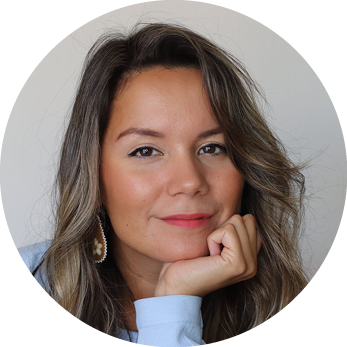
Gabrielle Scrimshaw
CEO, Indvest (Treaty 10 Territory, Canada)
Gabrielle Scrimshaw is the CEO of Indvest, a consulting and investing firm creating Indigenous social and economic impact. She has an MBA from Stanford and is a Gleitsman Fellow at the Center for Public Leadership at Harvard University. A regular contributor to Canada’s largest national media outlets, Gabrielle has been profiled by The New York Times, Forbes, and The Globe and Mail, among others.
Growing up in a town of 800 people in Canada’s north, Gabrielle was raised in a single-parent household and is a proud citizen of the Hatchet Lake First Nation. A first-generation student, she was named “One of 3 Young Aboriginal Canadians to Watch” by The Huffington Post. Over the past decade she has studied international business and policy across six continents. Gabrielle is the co-founder and past president of the Aboriginal Professional Association of Canada, a non-profit considered a global thought leader in Indigenous leadership.
See Gabrielle Scrimshaw at 360: Where We Go.
Heike Steinweg
Photographer
Berlin-based photographer Heike Steinweg has dealt with important social issues over the past few years. In her project I never said goodbye | Women in exile she portrays women who, for a variety of reasons, are living in exile in Berlin. She doesn’t direct our gaze to our different backgrounds but to the common future we share.
In Open History | Israelis and Germans in Portrait she traced German-Israeli relations beyond the political agenda by working with individual people. In both projects she combined portraits with personal statements by the people she had photographed. “Making the experience of individual people visible for me is also a political process” Heike Steinweg summarizes her work. Her work has been shown internationally in solo and group exhibitions in New York, Washington DC, Toronto, Berlin, Israel, and other places.
Apart from her creative artistic projects Steinweg is best known for her portraits of writers.
See Heike Steinweg at the Coffeehouse.

